|
I just finished reading the Esquire article, The Silent Epidemic Affecting Generation Z, by By Anna Altman
The above-listed article describes the elder caregiving bind which has fallen on Gen Z’s and its effects on their education, career development and forming families of their own. I dedicated my working life to finding solutions to eldercare; the-Gen Z caregivers issue was something I hadn't encountered until now; WOW! I worry about the Gen Z's being able to finish school, form families of their own, and move ahead in their careers. Unless we address this issue, our society will have a sad experiment in the affects of stress on the young. None of their goals are selfish; they are integral to the forward motion of our society. A better-educated younger generation will be more likely to have income to afford help for them in the future. Promotions at work helps secure their future and may grant benefits in their payment package as they become more "valuable" to their employers. Forming families of their own is the key to creating the next generation who will take over those jobs and help care for the Gen Z’s when they need it. These kinds of help today are NOT COSTS; they are INVESTMENTS in our country's future. We need to look at society's investment in these younger caregivers as though we are planting an orchard, not planting a crop. A crop is harvested at the end of the season, short term result. An orchard takes more years to reach production. However, it also produces more valuable 'crops" for a longer period of time. Let’s not cut down these young ones before we have all benefited from what they could do to “feed’ this country.
0 Comments
In "Companies need to do more for adult caregivers. Here’s why," by Darya Moldavskaya, the author touches on several points that have frustrated my clients who are, or were, caregiving adult children. Elder caregivers constantly juggle their work-family-household-AND-Mom lives. Introducing the topic through a Lunch-and-Learn format is great because the company already has the employees there. Now that Zoom is ubiquitous, employees who work split weeks can still attend those L-and-L's.
Senior Sidekicks' Parenting Preparedness course is formatted to fit into a luncheon series: Preparing to Parent You Parent. I recommend that companies bring adult caregivers, as well as Caregivers Emeritae (those whose elders have passed away) into the process to develop an Elder Caregiver Support Benefit Package. My youngest sister had struggled with cancer since 2019. She passed away on January 28th 2022 @ 2:53pm.
Valentine’s Day was approaching but it was the last thing on my mind. I remembered that she had always sent me a Valentine; usually home made. She was the only member of my family who did. Many times I had told her she didn’t have to go to all that trouble but she did it anyway, year after year. This year would be different, there would be no Valentines. Then our doorbell rang and my husband answered. All I could do was hear their conversation. Our caller was a little neighbor girl. The sound of her small voice reminded me of my sister. She presented us with some cookies and her hand-painted card. “I thought you would like these;” she said. We had never received a Valentine gift from them before. My husband handed the bag to me. I ate a cookie and cried; it was just like my sister used to make. This gift was “ordered” from beyond and arrived at my lowest point: one final Valentine. Love is stronger than death. This event made me think about my work with caregivers. How does the process of caregiving’s end impact them? A caregiver, whose recipient dies, has a loss of role as well as a loss of a loved one. Society isn’t always helpful; “Why don’t you go out and celebrate your freedom?” [from caregiving] How would you respond when you’re in mourning? Some people inquire about the caregiver’s next career move; “Are you going to go get a job?” Many caregivers have had to give up promotions, to preserve their caregiving role. They re-enter the workforce with a financial deficit. Caregivers need to re-enter the workforce but how and where? What skills do they need now? Where are the new jobs? Thus, former caregivers face a more uncertainly-funded retirement. Wouldn’t you feel lost when you realized that work-life, and former friends have moved on? Do these conditions make a former caregiver want to celebrate; or to wonder where to turn? (!) Still, there is the ever-present grief. Some cultures weave that process into a ceremony. Ceremony helps in two ways, it commemorates and encapsulates. Commemoration seems obvious; like saying a prayer or lighting a candle. Encapsulation isn’t as obvious. Once the candle is lit or the prayer said; it’s done. Once a physical action expressed the emotions of the Caregiver its performance holds those feelings. Caregivers need to be honored and recognized for their loss as well their service. The emotion becomes action; as the action contains the emotion. Giving emotion a place and holding it, frees energy to devote to caregiver re-entry. Paid caregiving staff would benefit from recognition as well. I attended a funeral for an elder who had full-time care at home. The family, wisely, invited the former care staff to the funeral and the meal-of-condolence afterwards. Family members introduced the staff to various mourners. That’s not only kind; it’s necessary. Paid staff can become attached to their elders. “They also serve who only stand in wait”* (on the elder). Would our society attract better caregiving staff if they knew they would be recognized for their service? Transitions from caregiving require time, and money. That same family paid each staff member for two weeks in addition to their time at the funeral. Hooray! They need to find another job. How would one leap to a new job in 24 hours? Former family caregivers find their service is considered “time-off” by employers! Really! Managing elder care takes skill and coordination; valuable traits. Getting the elder to cooperate with care is an art; like that of negotiation. It’s time to see caregiving as a valuable experience. Family caregivers need the same things but there is no system for them. Military personnel, re-entering civil life, can get help with training, and support. These processes of loss, grief and rebuilding in caregivers goes unrecognized by society; leaving them isolated. As the GIs returned from WWII, there was the 52-40 club. Each person got $40.00 for 52 weeks. There is no such program for former caregivers. Why not? Oh NO! Such a program would cost money! Family caregivers usually serve for free. They SAVE over $10 billion dollars for our society. If we had to fund that care, our country would be in serious trouble. If we had a caregiver re-entry program it would be a WIN, WIN, WIN. First Win: We could incorporate already-existing social structure like churches, to incorporate caregiving recognition and support into their mission. Former caregivers could pass on their acquired wisdom to support new caregivers. Second Win: Money spent on education for former caregivers pays off in better wages earned and more tax revenue for society Third Win: Former caregivers, who are better able to recoup their lost earnings, would be less likely to require public assistance in their old age. A former caregiver re-entry program wouldn’t cost, it would pay. * A Tale of Two Cities, Charles Dickens Covid-19 has required us to protect ourselves by wearing masks. Sadly, masks interfere with hearing aids. Thus, those who want to hear must contend with protection that makes hearing aids come loose, fall out of the ear, or tangled with the hearing device. That frustration could lead to quitting the mask or quitting the hearing aids.
We need both. Numerous research articles have documented the connection between maintaining one’s hearing and keeping one’s memory. Hearing aids are for more than hearing. On the other hand, the CDC guidelines are quite strict about wearing a mask to protect ourselves from Covid-19. We will need masks until we can develop an effective treatment and or a vaccine. That could be years. In Help! My Face Mask Is Getting in the Way of My Hearing Aid, AARP offers some ideas. While these might do for now, we should consider developing an easy-to-use, simple, device that does the job. If we can develop safety pins and zipper; we make a better device. The Strange Psychology of Stress and Burnout, which appeared in BBC WorkLife’s November 17, 2019 post, discusses the relationship of stress to Cortisol; important. The article described several results or diseases that begin with exposure to prolonged stress. It also mentioned some situations that can cause stress but left one out; caregiving! Already, 34.9 million people are self-identified caregivers. In addition, some people are starting to do caregiving and don’t realize they’re in this new role; yet.
This article shows the photo of a man; yet 66.5% of caregivers are women. The photo shows multiple phones. Yes, many caregivers have spent time on the phone to coordinate care for the elder. However, caregivers face the competition of simultaneously dealing with home, job, and possible child care while doing caregiving! The focus of the article is on job-related stress. Caregivers bring their stress to work with them. Thus, what looks like job burn-out might be a result of simultaneous stressors; job and caregiving. The remedy described in the article involves changing the perception of the person under stress; Cognitive Behavioral Therapy and changing jobs or shifting responsibilities. Sadly, these are not usually available to the family caregiver. She may not have insurance coverage for therapy. Group insurance plans may not recognize family caregiving as a stressor worthy of intervention. How does the working caregiver access therapy? She has no “off-duty” time. She goes from the career job over to the home “job”. It’s time for all of us to make sure caregivers as SEEN and heard. “‘This will be catastrophic’: Maine families face elder boom, worker shortage in preview of nation’s future,” from The Washington Post, could be a description of a dystopian movie: it’s not. This is the state of State of Maine, which is the harbinger of things to come for the rest of these 50 United States. We need to listen to this alarm.
We’re facing a demographic dilemma: not enough young people to fill all jobs, even those outside of elder care. We need them now! Where do we get them? We can’t hire them because they were never born! Thus, current workers remain on the job long after it’s safe or appropriate. Results include accumulated injuries to workers who keep doing injurious jobs. Even the field of healthcare can’t find enough workers or volunteers. The State of Maine has learned that there is no one available to fill home care jobs. There is no one to fill care facility jobs either. Professional fields have the same problem; many of the number of nurses and doctors are now older and there are not enough of them it is and there’s no one to replace them. Medicaid pays far less than other employers, drawing the few workers away from elder care. However, simply raising wages won’t help if there are not enough people to hire! Maine is already experiencing the results, some facilities closed altogether. Others closed admissions for months due to too few staff. No vacancies in care facilities means families must place their loved ones wherever they can. A loved one far away means a l-o-n-g commute to visit. Younger, disabled people also get caught in this care-crunch. If no one is available, some adult children try to fill the gap. Those care gaps further pressure the few remaining working adult children. Keep this number in mind: *By 2030, 1 in 5 Americans will be over 60. *The number of seniors will DOUBLE between 2015 and 2050. *The senior population over 85 will TRIPLE in that same period. **We will need 7.8 MILLION new people to fill these jobs. Since we didn’t give birth to them; where do we get them? This isn’t as riveting as a news story as a fire, or a shooting, that’s the problem. The numbers of affected families are there, but they aren’t collected (aggregated). This problem is spread everywhere. We’re in a presidential campaign yet no candidate is talking about this national problem. Why? This demographic dilemma is happening one family at a time: Your family is next. The Reuter's article, U.S wages lost to unpaid family care to hit $147 billion by 2050, describes lost wages and pressure on caregivers to switch to part time work or quit all together. These are definable numbers which the article describes well. One doesn’t hear enough about these issues and costs in the news media. I call upon anyone who knows a caregiver to insist on better public discussion on these caregiving issues/ costs/pressures.
I've always worried that caregivers also lost opportunity as well as wages. They are less likely to be offered new projects at work which can polish one's resume. They can’t take the lateral move which puts the employee in line to move up in a branch of the organization. A promotion comes with more demands on time and a different schedule. How can the working caregiver manage that? Promotions may mean a move out 0f town; how does a caregiver juggle that? So less chances to rise in a career. In addition, caregivers suffer hidden damages to their careers. Just taking repeated PTO (Paid Time Off) casts a shadow over one's career. Eventually, PTO runs out. When PTO runs out, the employee is left with FMLA (Family Medical Leave Act). That is usually unpaid. The employed caregiver must consider loss of income along with caregiving pressures. I'm also a member of Society for Human Resource Management (SHRM), and read their daily dispatches. It appears that employers are more comfortable allowing the employed caregiver a block of time, like a week or two, to handle a health crisis. Piecemeal time tracking is another matter. There are some tracking systems, however, these seem to be evolving methods. The employed caregiver may need to use her time in piecemeal form. Perhaps she takes her lunch time to supervise the elder taking medications. Her commuting time would be deducted from PTO or FMLA That's the typical shape of elder caregiving, a mosaic of times and tasks squeezed together throughout the day. So both the employed caregiver and her employer are both carrying this process. The caregiver is doing the tasks and the HR manager is handling the administration. This produces an implicit time cost to the employer. Why would the caregiver’s boss consider her for special projects, a move, or a promotion? These would demand more of her time and the employed caregiver doesn't appear to have any time. In order to develop one's career, one must appear to be ready and willing as well as able. No employer really knows whether any employee is truly available. However, a string of PTO/FMLA requests create an image of less availability. It’s a subtle form of job “loss” that doesn’t show on the paycheck. Only the US and England have a patchwork-to-none system for dealing with our aging population. Other European countries have created caregiving support systems. Why aren’t we looking at them? According to The Strange Political Silence On Elder Care, the problem is our society has an extraordinary number of caregivers who haven’t formed a group to push for change. Unlike other groups, such as Mothers Against Drunk Driving (MADD), caregivers should have formed a constituency to insist on changes which better support them; but they haven’t. Why not? One surprising finding is that caregivers don’t recognize themselves! How can our society offer support to a person who denies needing help? How can we help if they believe they can’t ask? What is the effect of this lack of coalescing, lack of self-identification and the resulting failure to prepare and plan?
This article describes the possible reasons:
Senior Sidekicks has stood with caregivers for the past 12 years! The caregiving phase is the newest part of life’s journey. A little over 100 years ago, people didn’t live long enough to reach this stage. Our firm has struggled to get new caregivers and those in the midst of caregiving to accept help. Perhaps this article explains why people, who are otherwise prudent, take such a strange view of caregiving. Let’s compare and contrast caregiving attitudes with attitudes to other parts of life’s journey: Your getting married, do you make plans? What kind of a wedding would you have if you didn’t acknowledge you were engaged? How would you bring your lives together in marriage: legal, financial, religious, integrating your families, where to live, and children? My parents, like many during WWII, had a hurry-up wedding. They were high school sweethearts, and engaged in college. When my father finished his course work and ROTC, he was shipped to Texas. The university mailed his diploma. My mother took the train to Texas and they were married by a preacher on base. They had 3 weeks of wedded bliss before he shipped out for 3 years! Mother went home to a fire storm! Both sets of parents were in shock. Mother had not completed her college education; could she go back and finish? Would the all-girls school take her back as a married woman? Neither of my parents had completed paperwork naming her his spouse? Forms and letters took a long time to reach soldiers in the field and even longer to receive replies. Who would be the listed next-of-kin in the event he didn’t come home? She even had to discuss possible burial arrangements!! Who was now responsible to pay for her education? Was she to receive his pay since she was his spouse? Mother described it as a very trying time that she had to face alone because they didn’t plan. Weddings are as much a family matter as caregiving. A wedding, without planning, causes major stress. Caregiving, without planning and support also causes major stress. Yet, families will tell me they’ll handle it all by themselves: really? Let’s look at another example: You’re having a baby! Does that mean you don’t need any help? If you’re expecting do you still need proper medical care, resolve legal matters, insurance, or a larger place to live? We expect that expectant parents need help. We’ve developed the social systems to provide it. Having children brings many resources into the family. There are Family Medical Leave Act (FMLA) for both parents in certain situations. There are prepared childbirth classes, visiting nurses to the home after delivery and new mother’s groups. Relatives come to help the new mother and baby. Everybody sends food! It’s acceptable to have help for babies, why not for caregivers? The difference is we’ve had babies for millennia; caregivers, less than 100 years. Thus, the family caregiver may or may not receive some defacto help from her church, neighbors, or friends. There’s no visiting nurse system. The caregiver can take FMLA but it’s complicated and doesn’t always cover the type of caregiving the employee needs to give the elder. Many FMLAs don’t pay the employee. Caregiving may mean moving the elder closer to the caregiver, or moving in with the elder. Caregiving may be so demanding that it afflicts the caregiver’s health. The caregiver may be forced to quit the job. A break in the caregiver’s career creates a major financial setback as the caregiver tries to re-enter the workforce. Caregivers often draw on their retirement savings during caregiving. Other developed countries have seen this writing on the wall and started putting plans in place. Why can’t the US do that? We can, if we act now. You can do two things:
Talk to your neighbors. Ask what your church is doing for caregivers? Ask your employer the same thing. FMLA, by itself, is not an adequate response.) Are you a member of a union; put caregiver support on the bargaining table. We already have mandatory courses in sexual harassment and discrimination. Make caregiving training the next mandatory course. Are you an employer? If you prepare for tornadoes; prepare for this gray tsunami. By 2030, 1 in 5 Americans will be over age 60 ENTER THE POLITICAL DEBATE ON THE SIDE OF CAREGIVERS: It’s time to insist that the political conversation of this campaign is about p-r-e-p-a-r-i-n-g for this gray tsunami! It touches everyone. It’s not red or blue, it’s GRAY. Candidates will ask for your vote; tell them to put caregiving in their platform to get your vote! Caregiving is at least as important as any other policy I’ve spent most of my career working with seniors and now I’m a senior. That position allows me to see certain situations with two viewpoints, professional and personal. A recent incident allowed me to glimpse a common situation families experience with seniors but from the internal viewpoint.
The typical scenario goes like this; family member does something they think would help the senior. They do it without discussing it with the senior; just present their contribution. The senior is far from appreciative. Instead, they are upset, angry, or dismissive. The family member reports that they feel wounded, or frustrated. Families say; “I was only trying to help!” Why didn’t the senior see the value? Ask yourself; “When I do things for my senior, am I doing it with them or to them?” I got to experience this myself. Recently, I visited my children in New York. We rented a B&B which turned out to be awful! After confronting the agent and securing a refund, we had a sad dinner. It was late at night and the children were on their phones looking for lodging. We trudged to the hotel; I checked in and went to bed. Unbeknown to me, the children believed the hotel was “dodgy”. They stayed up to late to book another hotel! Now, I was on the hook for a bill I knew nothing about! I woke up to a call from my daughter-in-law with this news. I had not yet showered, no breakfast, and now I’ve got to deal with this! I strenuously objected. Insight came to me in the shower (which was running very s-l-o-w-l-y). Three words stood at the center of this conflict: for, with, and to. My children thought they were doing something for me by booking another hotel. It didn’t feel like that to me. Is that what’s going on internally when the senior objects? Does for take away another piece of their autonomy? They didn’t do it with me. They kept silent instead of sharing their concerns about the hotel. They made financial assumptions instead of asking me questions. Their decision put me in a money bind. I felt as though things had been done to me. Is that what’s going on internally when seniors object? Are they really mad about the item or the way it came to them? Do families need to take time to walk the senior through the process (preferably after breakfast) or find some way to engage them? I believe that for is a good thing, in the combination of with, so it doesn’t feel like to. P.S. The next hotel had a better shower. One of my patients recently complained. I asked her what her doctor said. She told me she had forgotten to tell her doctor. She told me that she had become used to the problem and “accepted” it. Many senior-related articles advise writing down symptoms and questions before visiting the doctor. Good advice; as far as it goes. It’s the stuff that falls off the radar that could be the most important. The doctor needs information from the patient or the patient’s advocate. That information is the basis to decide which questions/tests to pursue.
What kind of information doesn’t get to the doctor?
|
Author "A Senior Moment" is written by Ms. Sara Lieber, owner of Senior Sidekicks. Ms. Lieber has over 30 years of experience in senior care. Archives
March 2024
Categories
All
|

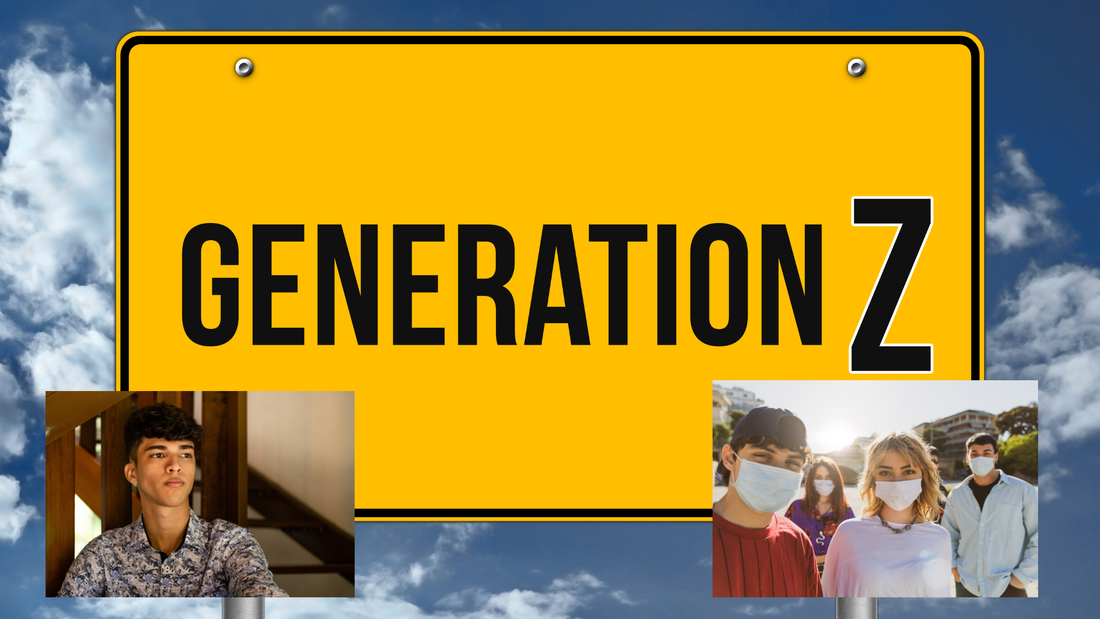


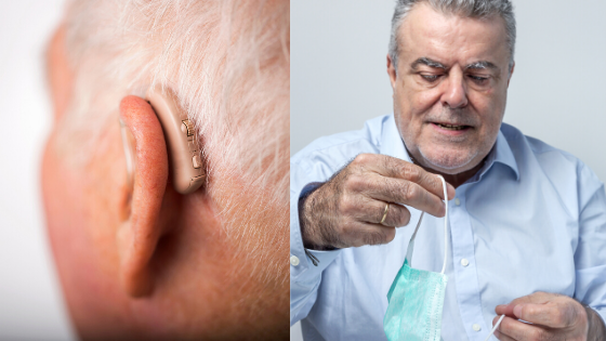
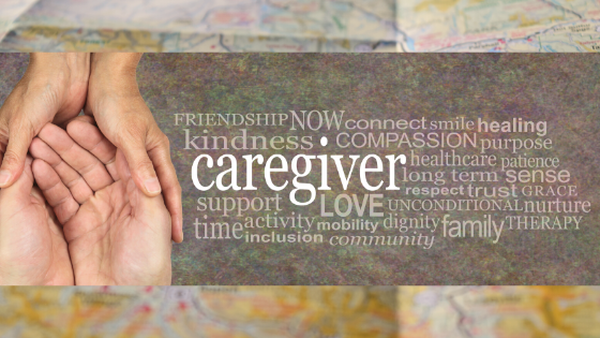

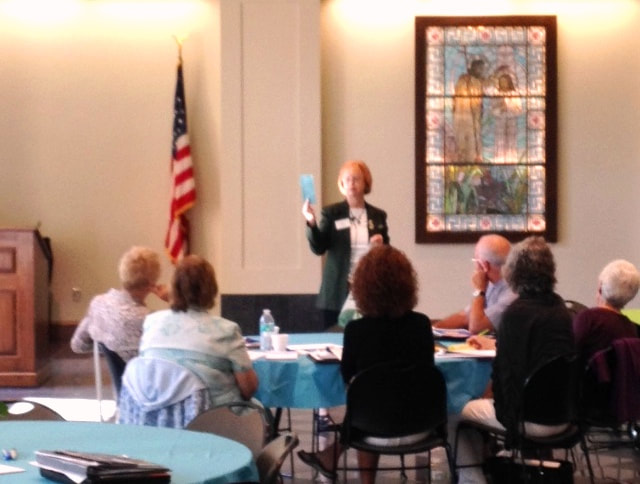
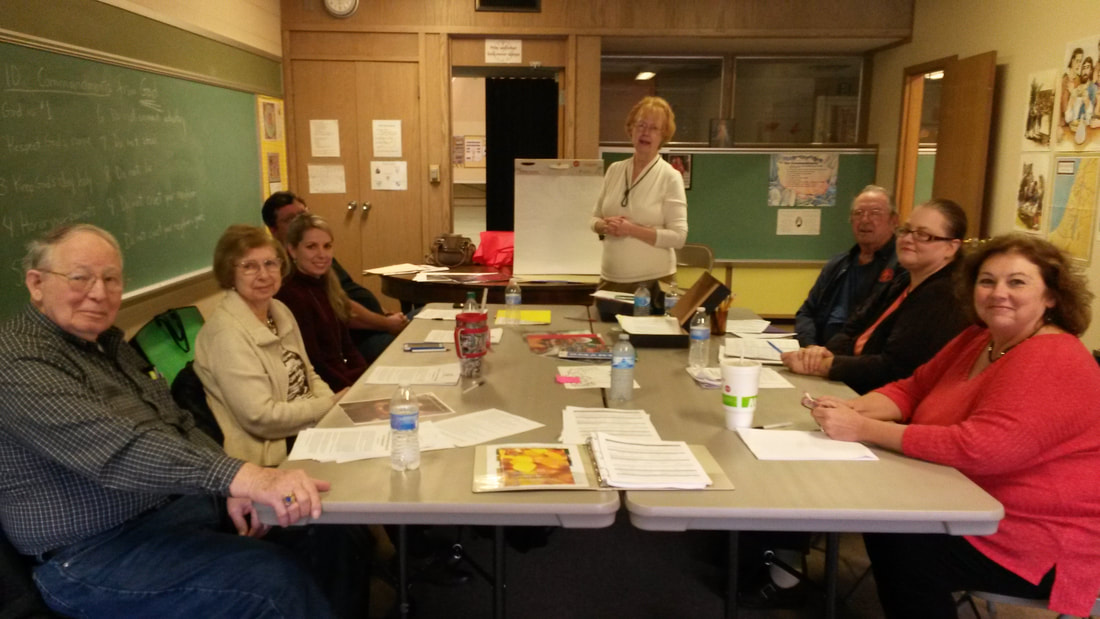

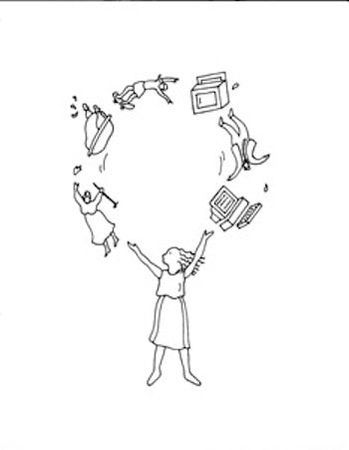
 RSS Feed
RSS Feed